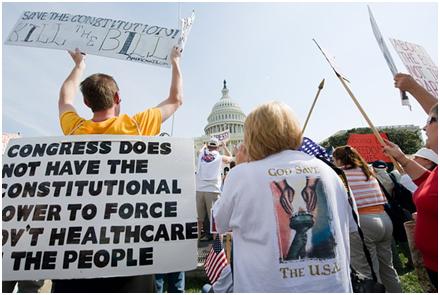Here’s a list of articles that I have been reading lately (organized by topic):
Economics
Source: hbswk.hbs.edu
“Book publishing is changing before our very eyes, even if the industry itself is fighting the transition with every comma it can muster. Harvard Business School professor Peter Olson, former CEO of Random House, wonders if books themselves may be in jeopardy.”
|
Source: gregmankiw.blogspot.com “Here is a good article for class discussion. Apparently, some government regulators think unpaid internships might violate minimum-wage laws. (FYI, the internship at the Council of Economic Advisers is unpaid!)” Health Care Reform |
Source: freakonomics.blogs.nytimes.com
University of Chicago economist Steven Levitt notes that “…the health care bill that passed recently is a disaster for at least two reasons. First, it seems to do little or nothing to deal with the single most important shortcoming of our current system: the fact that people pay very little on the margin for the medical care that they receive. The second huge flaw … is that health care is provided through employers, leading to job lock, lost coverage when people become unemployed, etc. While the bill does have some elements that weaken the link between employers and health care, it also has other features that strengthen it. Ultimately, it is hard to believe that this bill will be a net positive. It remains to be seen whether it will be a wash, or far worse.” Levitt’s views line up well with my own; see my August 27, 2009 posting entitled “My preferred approach for reforming health care…”.
Miscellaneous
“The Northern Hemisphere once more begins its tilt towards the Sun, awakening flowers, ushering in new life, and coaxing people outdoors once again. The changing of the season is easily observed in gardens, parks, zoos, farms, festivals and more. Collected here are a handful of photographs showing signs of Spring, 2010, as the final remnants of last winter start to melt away. (27 photos total)”
“A five-week-old Chinchilla rabbit nibbles grass at a rabbit farm in Moosburg north of Munich March 22, 2010. The rabbits at the farm are bred to compete in rabbit shows. (REUTERS/Michaela Rehle)”
|
Politics
Source: www.insidehighered.com “Theories abound about why academics are more liberal than are average citizens. Some blame bias, arguing that conservative scholars are denied positions. Others see self-selection at work, with academe attracting more liberal individuals, while conservatives are more likely to opt for other careers….”
Source: online.wsj.com
“In The Wall Street Journal, NPR political analyst Juan Williams says dissatisfaction with the economy and the country’s direction cuts across racial lines.” Public Policy and the Financial Crisis
Source: www.nber.org “Federal mortgage modification initiatives, targeting millions of borrowers, are intended to prevent foreclosures of underwater home mortgages. Those initiatives discourage principal reductions in favor of interest reductions, despite the possibility that the former would be a more durable foreclosure prevention tool. The programs also impose marginal income tax rates substantially in excess of 100 percent. Using the framework of optimal income taxation, this paper shows how alternative means-tested modification rules would simultaneously improve collections, efficiency, the number of foreclosures, and their total cost. As a result, lenders have an incentive to foreclose on borrowers deemed modification eligible by the federal programs.”
Source: online.wsj.com “In The Wall Street Journal, FDIC Chairman Sheila Bair says the agency’s process for resolving failing banks will avoid forcing the taxpayers to bail out large financial firms.” |







 Stop!
Stop!